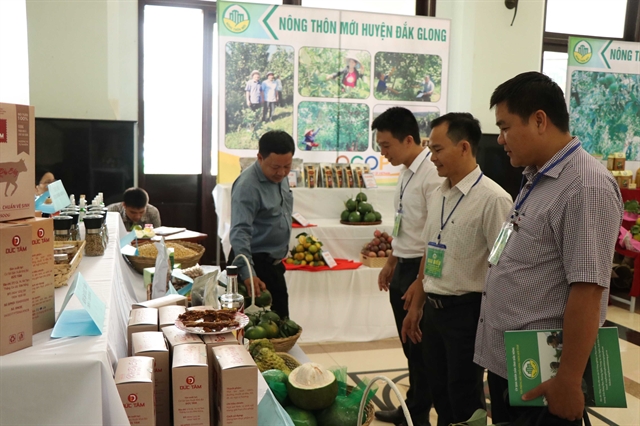 Society
Society


|
| Agricultural products from Đắk Nông Province are introduced at a trade fair. — VNA/VNS Photo Ngọc Minh |
ĐẮK NÔNG — The Central Highlands province of Đắk Nông has set targets for the next five years for its "new-style rural area" programme, for which it has spent more than VNĐ91 trillion (US$3.9 billion) since 2010, according to the provincial People’s Committee.
The provincial People’s Committee chairman Nguyễn Bốn said that three districts are expected to be recognised as new-style rural areas in the 2021-25 period.
Developing infrastructure and promoting effective farming models as well as linkages between production and consumption of agricultural products will be strengthened to reach the target.
“We need to focus on helping poor households escape poverty and improve their lives, especially ethnic minorities,” he said.
The implementation of the national new-style rural area for the 2010-2020 period resulted in 16 of the province's 61 communes recognised as new-style rural areas.
Traffic infrastructure, electrical systems, water supply systems, schools and medical facilities have improved significantly and issues related to cultural and sport development as well as environmental protection have been addressed.
Lê Trọng Yên, director of the province’s Department of Agriculture and Rural Development, said that shortcomings, however, still existed, including public awareness campaigns.
“Difficulties in mobilising capital resources and a lack of State capital have also created challenges for implementation,” he said.
In addition, some poor households continue to rely on support from the State and community, and have not been proactive in trying to escape from poverty, he said.
Forty local collectives, nine households, and 14 individuals received certificates of merit for their significant contributions to building new-style rural areas in the province. — VNS




